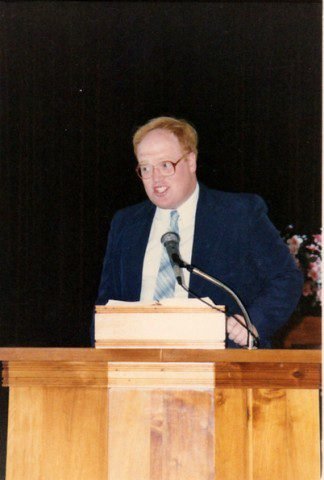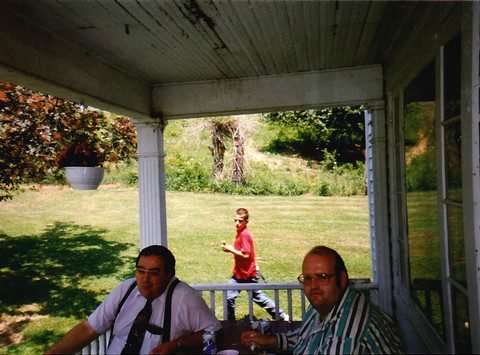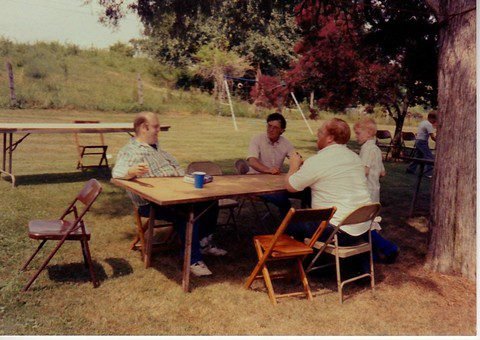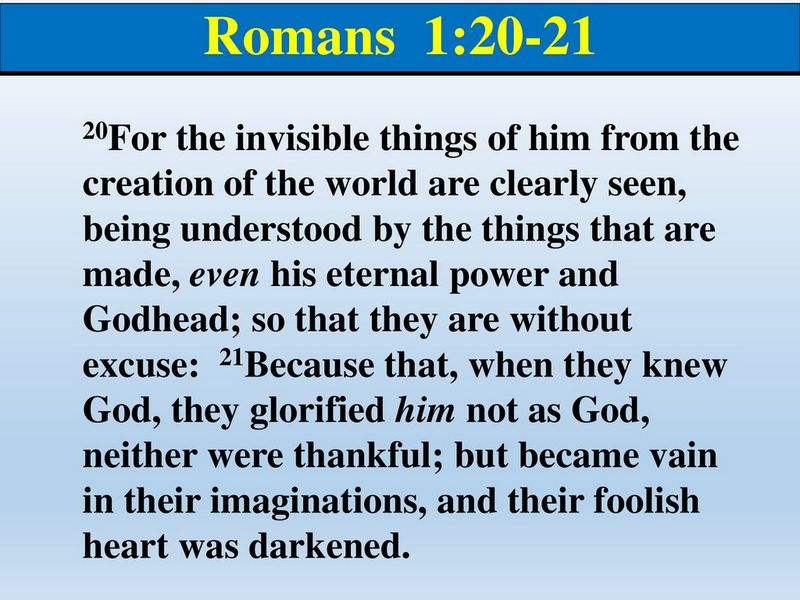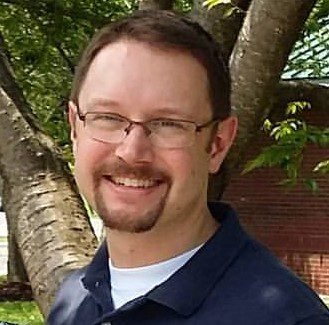
Today, I received an email from an Evangelical woman named Cheryl who emphatically stated:
Just have a comment. Calvinism is a false Gospel and is not from God. To me it’s from Satan and blasphemy.
Best I can tell from the logs, Cheryl read Why I Hate Jesus, the About page, looked at posts associated with the tag Calvary Baptist Church Dundalk, watched part of my talk to the Secular Humanists of Western Lake Erie, and looked at the front page. All told, she spent about ten minutes on this site.
Typically, I just sigh (please see Why I Use the Word “Sigh”) when I get emails such as this one. Filled with certainty, arrogance, and judgmentalism, writers such as Cheryl are so puffed up with themselves that there’s little, if anything, I can say that will make a difference.
Is Calvinism a false gospel? The email writer says yes! How can she possibly know this? Evangelicalism is rife with gospels. How does one possibly determine which gospel is right? If my eternal destiny depends on me believing the right gospel, how do I figure out which gospel is the “faith once delivered to the saints?” The Bible says there is “One Lord, One Faith, and One Baptism,” yet every Evangelical church seems to preach “Their Lord, Their Faith, and Their Baptism.” Who is right? Cheryl is certain, absolutely certain, “I know whom I have believed” certain, that her gospel is the right one. Based on the plethora of Evangelical gospels, how can she possibly know that her gospel is true, and, by extension, all other gospels but her’s are false?
Calvinistic soteriology teaches that salvation is of the Lord; that no one can be saved unless God saves them; that God predestines some people to salvation. Further, Calvinists believe that God is sovereign over all things; that nothing happens that is not according to his purpose and plan. Calvinism, of course, is much more complex than what I have stated here, but this will suffice for the purposes of this post.
Wikipedia describes Calvinism this way:
Calvinism (also called the Reformed Tradition, Reformed Protestantism or Reformed Christianity) is a major branch of Protestantism that follows the theological tradition and forms of Christian practice set down by John Calvin and other Reformation-era theologians. It emphasizes the sovereignty of God and the authority of the Bible.
Calvinists broke from the Roman Catholic Church in the 16th century. Calvinists differ from Lutherans (another major branch of the Reformation) on the spiritual real presence of Christ in the Lord’s Supper, theories of worship, the purpose and meaning of baptism, and the use of God’s law for believers, among other points. The label Calvinism can be misleading, because the religious tradition it denotes has always been diverse, with a wide range of influences rather than a single founder; however, almost all of them drew heavily from the writings of Augustine of Hippo twelve hundred years prior to the Reformation.
As you can see, Calvinism is a subset of Protestantism. It has a rich history, with adherents found in countless sects across the globe. Here in the United States, millions of Christians claim the Calvinist moniker. Cheryl would have us believe that these people are Satanic and blasphemous. She seems to lack charity towards his fellow brothers and sisters in Christ.
I was a Calvinist for a number of years. I drank deeply from the Puritan/Reformer well. I can confidently say that Calvinism is Biblically supported. Of course, so is Arminianism and every other Christian soteriology. There’s no possible way to reconcile these various schools of thought. How could we possibly determine who is right? It seems to me that everyone is right, and that the goal should be to humbly follow Jesus and charitably accept those who claim the name of Christ. From 1995-2002, I pastored Our Father’s House in West Unity, Ohio. The main door into the building had these words on its glass: The Church Where the Only Label That Matters is Christian. By this time, I had moved a long way away from the narrowminded bigotry of my IFB years. I was still a Calvinist, but I no longer viewed other Christians as suspects or less than. That allowed me to befriend a number of ministers in town; men who I would have banished to the darkness of Hell years before.
This email reveals Fundamentalist thinking; a worldview based on certainty of belief. Cheryl might want to debate theology with me — and I am game — but the greater issue is her heart. The Bible speaks of unity, yet everywhere unbelievers look they see disunity and internecine warfare. Jesus said in John 13:34-35:
A new commandment I give unto you, That ye love one another; as I have loved you, that ye also love one another. By this shall all men know that ye are my disciples, if ye have love one to another.
Where can one find this sort of Christianity today? While there’s nothing that can be said that would incline me to return to Christianity, I am more than willing to admire and appreciate a faith grounded in love of believers for their fellow man.
Bruce Gerencser, 68, lives in rural Northwest Ohio with his wife of 47 years. He and his wife have six grown children and sixteen grandchildren. Bruce pastored Evangelical churches for twenty-five years in Ohio, Texas, and Michigan. Bruce left the ministry in 2005, and in 2008 he left Christianity. Bruce is now a humanist and an atheist.
Your comments are welcome and appreciated. All first-time comments are moderated. Please read the commenting rules before commenting.
You can email Bruce via the Contact Form.

